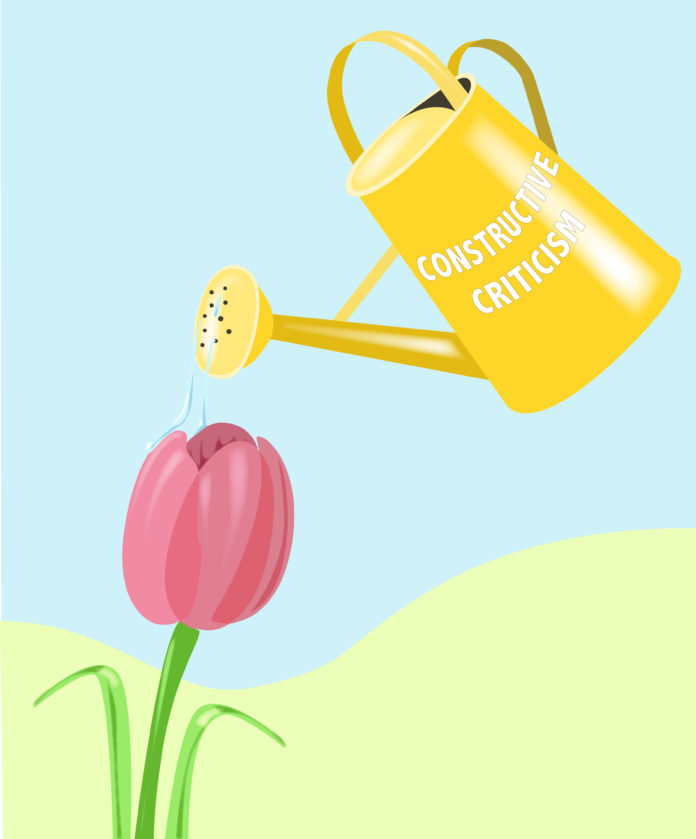As we move through the school year, everything seems to get harder. The grading gets stricter, the tests get more in-depth, and sometimes, it seems like you literally can’t get anything right. Students often struggle with professors’ responses to their essays, projects or presentations, because they can come off as being harsh, unrealistic or just plain rude. However, learning to take constructive criticism is incredibly important — it leads to more success in hiring, better grades and a more productive view of yourself.
If we as students aren’t receptive to the commentary about our work in school, how can we expect to survive the working world, where at times performance reviews dictate your life?
Being willing to listen to someone point out a weak spot in your work is a rare trait but is incredibly valuable to employers. For seniors looking to get a job, ensuring that your employers know you won’t get offended if they critique your work is essential. If a manager thinks they have to coddle you or treat you with a velvet glove in order to help you learn, not only can it be detrimental to your getting hired, but it could lead to inefficient and negative workplace environments.
Forbes published an article about giving constructive criticism, and it shows that not only is this situation an emotional moment for both employer and employee, but it also can become incredibly toxic if not handled properly. In the working world, there is very little space for those who can’t communicate well, and for those who can’t take criticism or critique — that box is even smaller.
That’s not to say there aren’t unproductive forms of criticism or critique. If the person critiquing does not offer constructive ideas on how to improve their work, or they rag on you without giving you a chance to improve or take their criticism first, there’s very little benefit. For professors and employers, it’s important to know where the line is between being unproductively critical and being helpful and encouraging. Although this might sound like a simple point, it can actually be quite difficult.
For example, say a student turned in a paper, and the paper was decent enough, but the student wasn’t very clear on their argumentation points. The professor could do one of two things: Mark up the paper with in depth explanations as to why the student missed the mark or simply give a letter grade with no explanation. It might be easier to do the latter, since professors have a ton of papers to grade, but taking the time to offer simple suggestions for how students could improve makes all the difference to students trying to become better writers.
It’s also important for students to remember that professors do have large classes with tons of papers to grade. Just like in the workplace, its imperative that you advocate for yourself. If you don’t understand why you got the grade you did, or why your boss keeps telling you you’re doing something wrong, make sure you ask the right questions. It’s difficult to approach someone you know is going to tell you what you’re doing wrong, but if you can muster up the courage to do so, it could make all the difference in understanding the material or the job required of you.
Even more than that, it can help you improve your self-image. This may seem counter-intuitive, since criticism doesn’t seem like it could help you grow positively at all. However, the more you remind yourself that the criticism you’re receiving is not indicative of your worth as a person, and the more you open yourself up to constructive criticism, the better off you will be. It is important to remember that the critique you’re receiving is from an objective point of view (most of the time) and therefore, should not be taken personally. Critique is not a personal attack, but rather a guide toward success. And if the critique you’re getting is actually personal, you should find someone else to review your work — someone who may have a more helpful perspective on your situation.
Learning to take constructive criticism is not easy. It means opening yourself up to the concept of failure and subjecting something that you have poured time and effort into to being torn apart. It can be terrifying, but it’s invaluable. Take the time to reach out and get constructive criticism, because the more you get, the better you’ll be at the skills you want to perfect.






